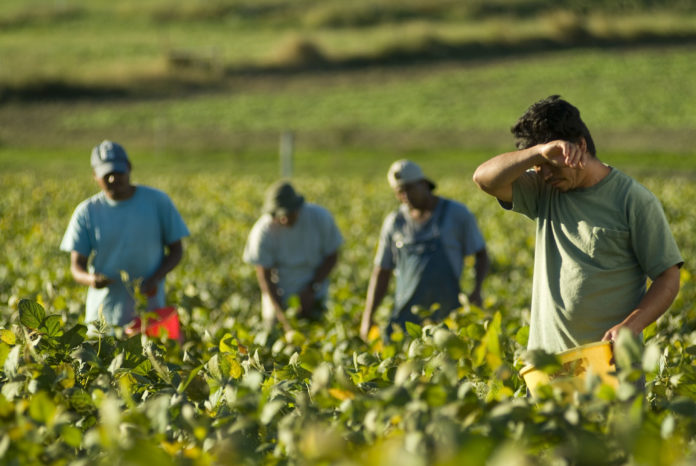CULLMAN, Ala. – The popular image of human trafficking typically involves the forced abduction of young women to be transported across national lines into lives of coerced prostitution. While this does happen, one very common form of human trafficking does not involve sex at all. The victim, instead, is picking produce on a farm, washing clothes and dishes, or manufacturing goods.
Cullman County Human Trafficking Task Force Chairperson Kathy Wilson told The Tribune, “Labor trafficking is a form of modern-day slavery in which individuals perform labor or services through the use of force, fraud or coercion. Labor trafficking includes debt bondage (requiring a person to work for the trafficker to pay off debts), forced labor and involuntary child labor.”
Victims are often made to work excessive hours with little or no pay, under unsafe or unhealthy conditions, subjected to unfair and illegal labor practices.
Involuntary servitude is the biggest and most common form of labor trafficking in the world, according to the U.S. State Department. This can include agricultural work, manufacturing, janitorial services, hotel services, construction and hair and nail salons. Labor trafficking occurs in numerous industries in the U.S. and globally. In the U.S., the most common types of labor trafficking include people forced to work in homes as domestic servants, farmers coerced through violence as they harvest crops, or factory workers held in inhumane conditions.
Traffickers lure their victims by manipulating and exploiting their vulnerabilities, often beginning with offers of benefit or a better life, but leading to coercion through several means:
- use of force
- threats of violence to victims or their families
- confinement or restriction of movement
- withholding of most or all of the worker’s pay
- seizing and holding legal documents
- threatening to reveal immigration status
Recent Alabama case
In April 2019, Alabama Attorney General Steve Marshall shut down four massage parlors in Huntsville owned by a mother and daughter who are Chinese nationals. In addition to the sex trafficking charges that are often associated with commercial massage parlors (as opposed to therapeutic massage facilities operated by trained and licensed providers), the owners could face additional legal troubles. According to a press release, Marshall’s legal complaint included a statement that “In the Defendants’ organization, the ‘employees’ work incredibly long hours during which at least some of them are expected to engage in sex acts with the businesses’ customers. When the victims are not ‘working,’ they seem to have little freedom of movement, they are transported in groups to and from the Defendants’ businesses and are kept in houses owned by the Defendants where they are left to eat and sleep in terrible conditions.”
Under this description, the owners face allegations of both sex trafficking and labor trafficking.
Fair trade
Labor trafficking victims make a high number of goods and food products consumed in the U.S.
Wilson said, “We should educate ourselves on these type products and support those companies who are Fair Trade companies. Fair Trade promotes the buying and selling of products that makes certain that the people who produce them receive a fair wage.”
Some of the most used everyday products may be produced by child labor in other countries. Examples are coffee, sugar, cell phones, gold, chocolate, clothing, toys, makeup, leather and many other goods. The U.S. Department of Labor has identified 148 goods from 76 countries made by forced and child labor.
“Know before you buy,” said Wilson.
The International Labor Organization estimates that there are 20.1 million people trapped in forced labor around the world. Since 2007, the National Human Trafficking Hotline, operated by Polaris Project, has received reports of more than 7,800 labor trafficking cases inside the U.S.
For a listing of Fair Trade certified companies, visit www.fairtradeamerica.org/Fairtrade-Products.
If you suspect that you have witnessed any form of human trafficking, contact local law enforcement or the National Human Trafficking Hotline at 1-888-373-7888.
Copyright 2020 Humble Roots, LLC. All Rights Reserved.





















